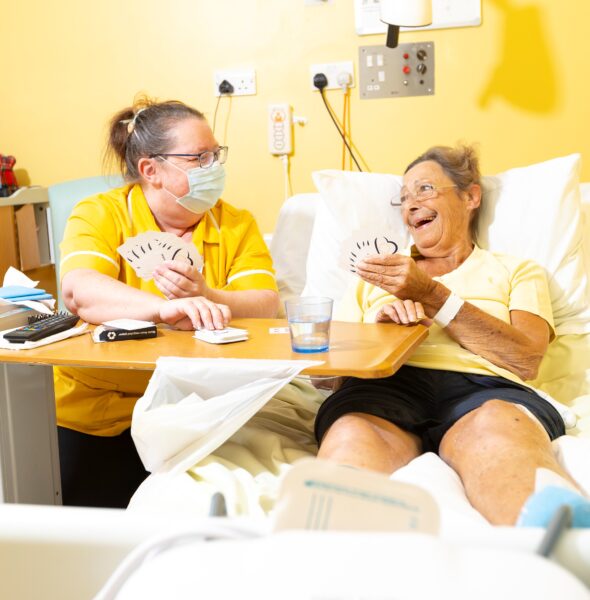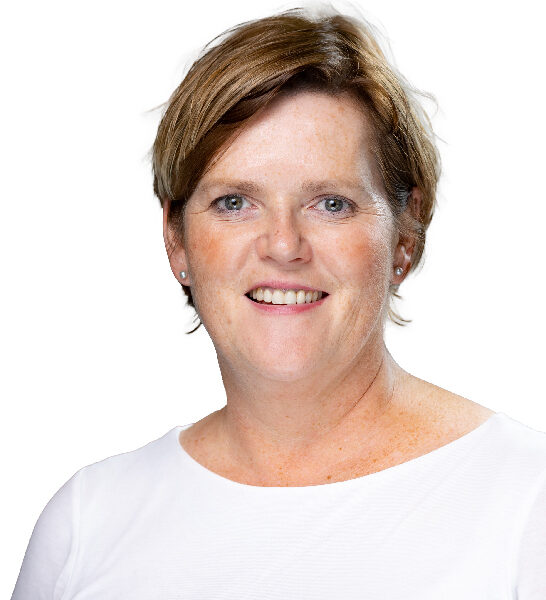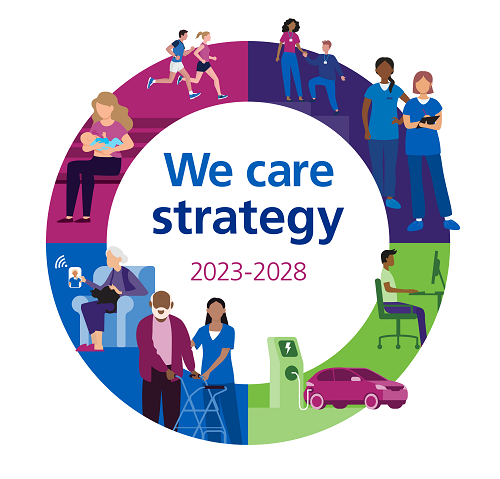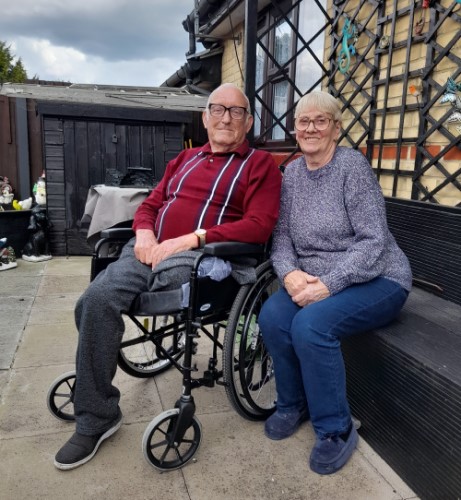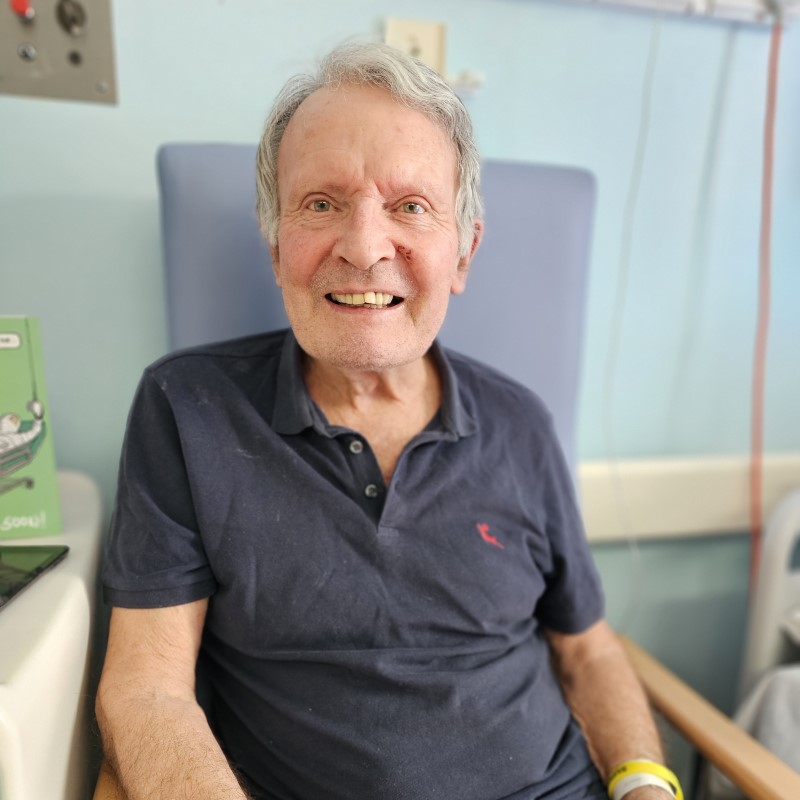The NHS at 75
Chief Executive Mairead McCormick
It’s hard to believe the National Health Service is now 75-years-old.
I wanted to be a nurse from as early as I remember. I spent my childhood years bandaging and sticking plasters on my siblings and anyone who sat still long enough, so ending up as an emergency nurse was not a surprise to anyone.
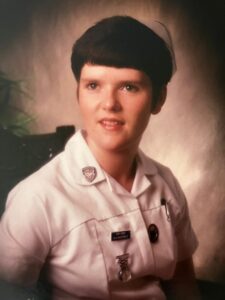
Me as a student nurse
I can still vividly remember my first day at the age of 17 as Student Nurse McCormick, 35 years ago. I always thought it was quite impersonal that we didn’t use each other’s first names because our first name is an important way of connecting, rather than been referred to as a band or something impersonal.
I’ve never regretted my career path, even if at the beginning that meant spending a lot of time in the sluice.
Twenty years into my nursing career I moved into an operational role that helped me understand how finances work, managing risk with good governance and creating a vision and turning it into a reality.
I continued to grow and learn with an opportunity along the way to really focus on how to do improvement well, when I worked with NHS England.
Leaving my clinical role was a difficult choice and I still miss direct patient care, but being able to influence care for local populations gives me great job satisfaction. Looking back, I think I was always putting myself forward to lead change or improvement where I could see real opportunities to make things better for patients or colleagues.
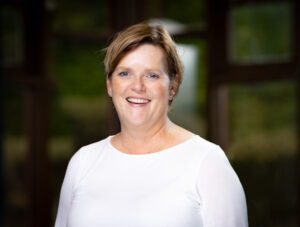
Me now
I’m very lucky, after a hugely varied career, to now be chief executive of Kent Community Health NHS Foundation Trust.
Some people believe community care isn’t at the cutting edge of the NHS, but believe me, they couldn’t be more wrong.
We now have the ability to deliver more complex care in the community than ever before, our virtual wards are just one example and with advancing technology there is even more we can do.
What does the future hold?
I want to look further ahead and talk about my 10 to 15-year view of what I believe community care could look like, if we can deliver the changes we need to.
In 10 to 15 years, I hope, if we have spent enough time focusing on prevention, you will be living in thriving and supportive communities, well-equipped to look after your own health and stay healthy for longer.
We will have made headway in tackling health inequalities, so where you live doesn’t dictate how long or how well you live and our prevention work will mean we see fewer people developing long-term health conditions that restrict their ability to live a full and active life.
Because health and social care colleagues will be working hand-in-hand in integrated teams, we will know if you are at risk of deteriorating and will work pro-actively with you to develop a health plan. We will be addressing issues, such as childhood obesity, so we should be starting to see many more adults with a healthy body weight.
In communities, where prevention is having an impact, fewer people will be taken to hospital. Our community teams will be first responders, around the clock, for people who do not need admission to hospital, but might need a little support to stay in their own home.
If you are ill or injured and you need to stay in hospital, we’ll be getting you back home after the shortest length of stay as possible, following intensive rehabilitation in a centre of excellence. People will only be taken to hospital when a treatment cannot be delivered in the community and that means teams moving freely, not thinking of the building as where they work.
Professional roles and disciplines will not be barriers to care. One way we will have addressed our workforce challenge is by developing the skills sets of our colleagues to be better equipped to meet your needs, whether that’s a health or a caring need – through blended roles – while still recognising the need for specialist skills.
Talking about death and dying will be encouraged so we will do everything we can to plan for something that is inevitable for all of us.
I have every confidence that we can make this vision a reality. The work we’ve done as KCHFT, working closely with our colleagues in social care and the voluntary sector, will help pave the way to make sure NHS community care will be something we are still proud of in the years to come.
It’s a wonderful job to care – there are so many amazing opportunities and having now spent 35 years in the NHS I still believe it to be the best decision of my life. I love it, I believe in it and delivering care has been the greatest privilege of my life.
Happy birthday to us.
Mairead
Share this article on social media

